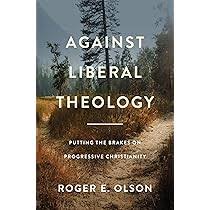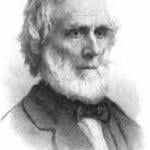God According to Liberal Theology
This continues my/our discussion of my book Against Liberal Theology: Putting the Brakes on Progressive Christianity. Here I take up Chapter 4: God According to Liberal Theology.
If you have read the chapter you may comment. If not, only ask a question.
The thesis of the chapter is: “The majority of liberal Christian thinkers do not believe in supernatural divine interventions in nature or history. However, the revisions go deeper. Most modern liberal Christian thinkers oppose the idea of a transcendent, sovereign, personal deity like the one classical, orthodox Christianity teaches and worships.” (75) I substantiate the thesis with many quotations by leading American liberal theologians.
The key to understanding liberal theology’s god is its emphasis on divine immanence—the “within-ness” of God in all things. God’s transcendence is neglected by liberal theologians. “Panentheism” is a concept of God that dominates in liberal theology. It means that God and the world (cosmos, universe) are eternally interdependent. The world exists within God and God exists within the world.
The problem with panentheism is that it undermines grace. If God and the world exists interdependently, then creation and redemption are not of grace but of necessity—for God’s own sake. And, in fact, creation is only God’s struggle to bring about unity and harmony within the world. Most liberal theologians do not espouse creation out of nothing.
Throughout the chapter I say that the problems with liberal theology’s doctrine of God are not so much what liberal theologians affirm as what they deny. They deny God’s “prior actuality”—that God precedes the universe ontologically.
Underlying liberal theology’s doctrine of God and the world is liberal theology’s embrace of “theistic naturalism,” the idea that the world operates according to iron-clad natural laws with no “room” for exceptions such as miracles. Except that liberal theologians acknowledge the reality of “spirit” not exhausted by “nature.” They are not materialists. But does this work? The reason they hold to naturalism is its embrace by modern science. But doesn’t most of modern science affirm materialism or at least deny the reality of spirit, that is “spirit” that can transform by means other than scientifically describable ones?
Can Christianity be authentic without miracles such as the resurrection? I think not. Can Christianity be authentic without a personal God who transcends nature and is more than a spiritual depth dimension of nature? I think not.
A note about “panentheism:” Recently some non-liberal theologians have been embracing the term without embracing its original meaning. That confuses things. I prefer to stick to the original meaning of the word according to German theologian Krause who, in the early 19th century, defined it as Hegel’s idea of God as “Absolute Spirit” who depends on a world for self-actualizes ion.
*Note: If you choose to comment, state whether you read the chapter. If you did not read it, feel free to ask a question. In either case, keep it relatively brief (no more than 100 words), on topic, addressed to me, civil and respectful (not hostile or argumentative), and devoid of pictures or links.*














